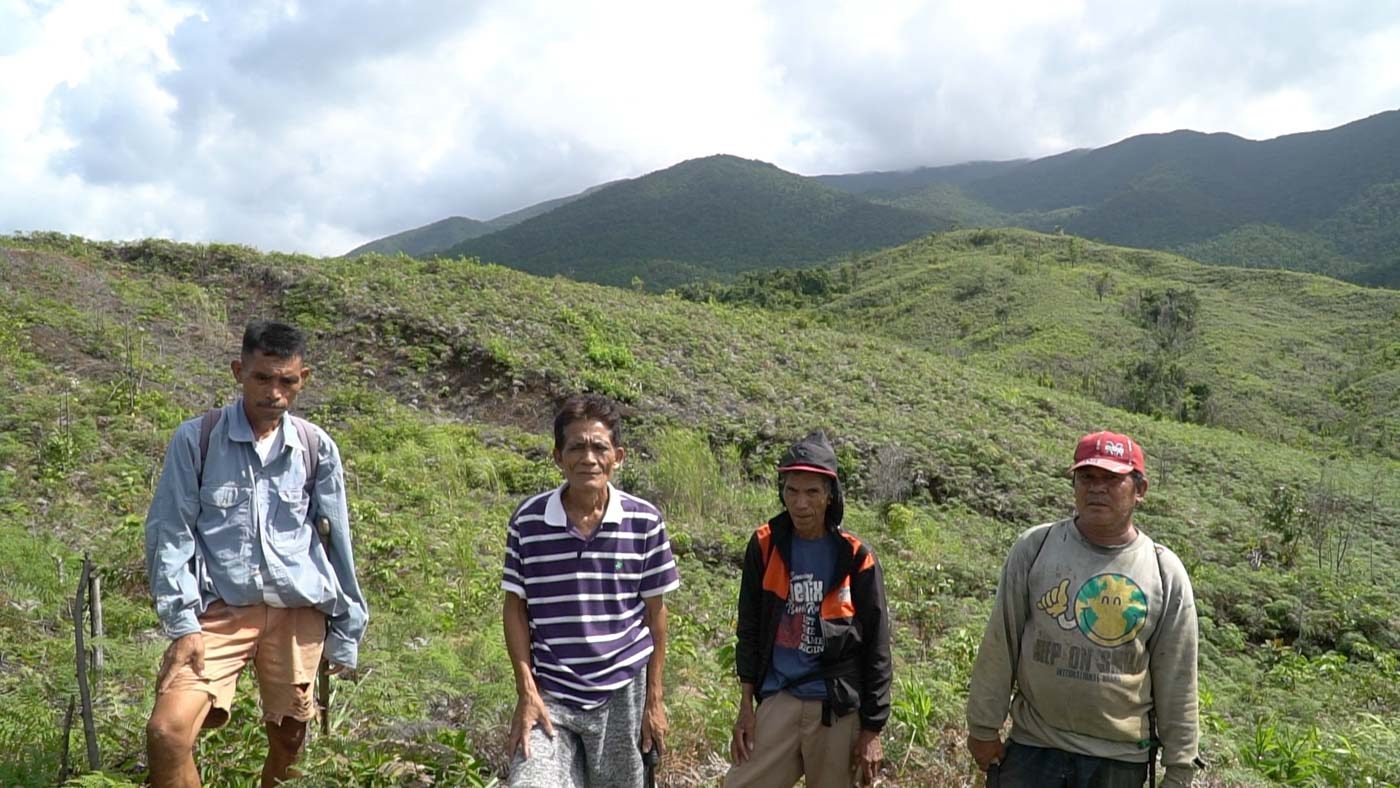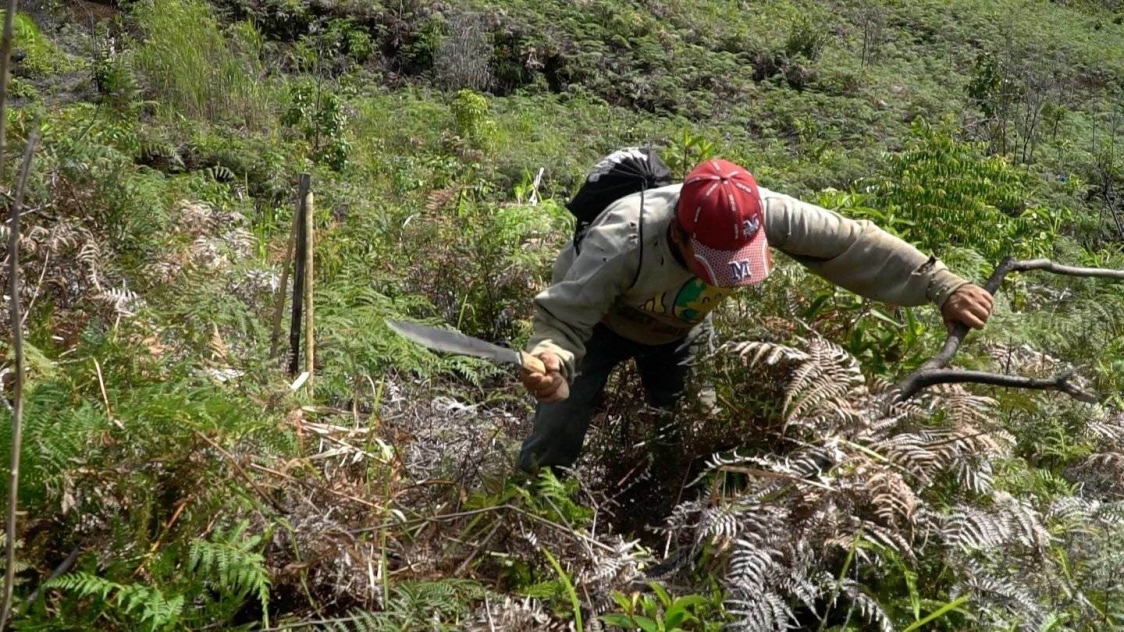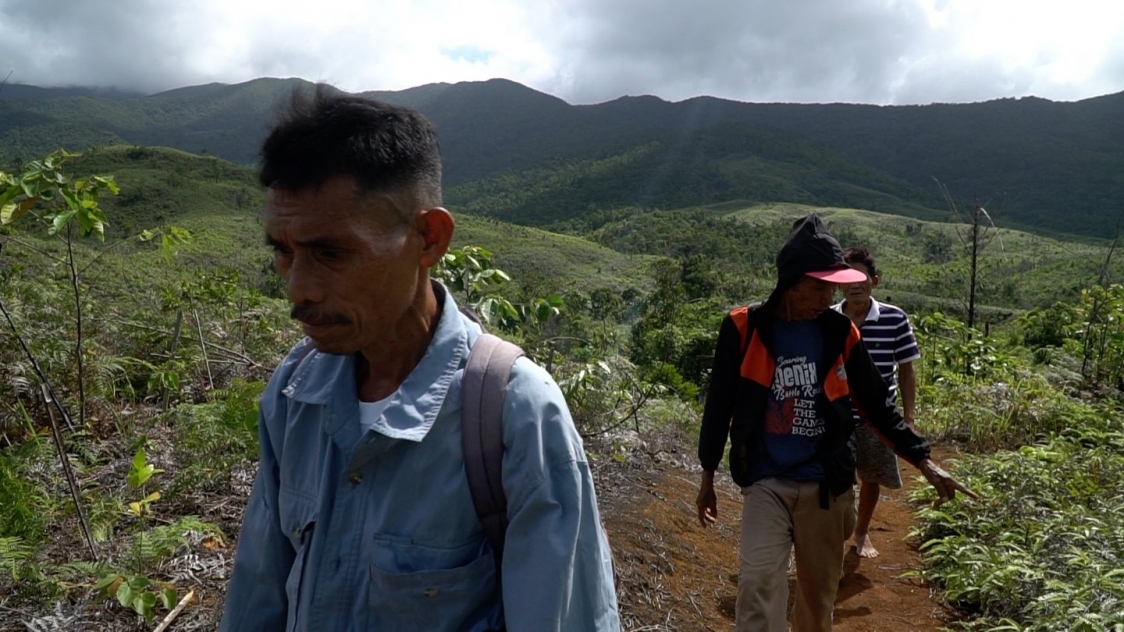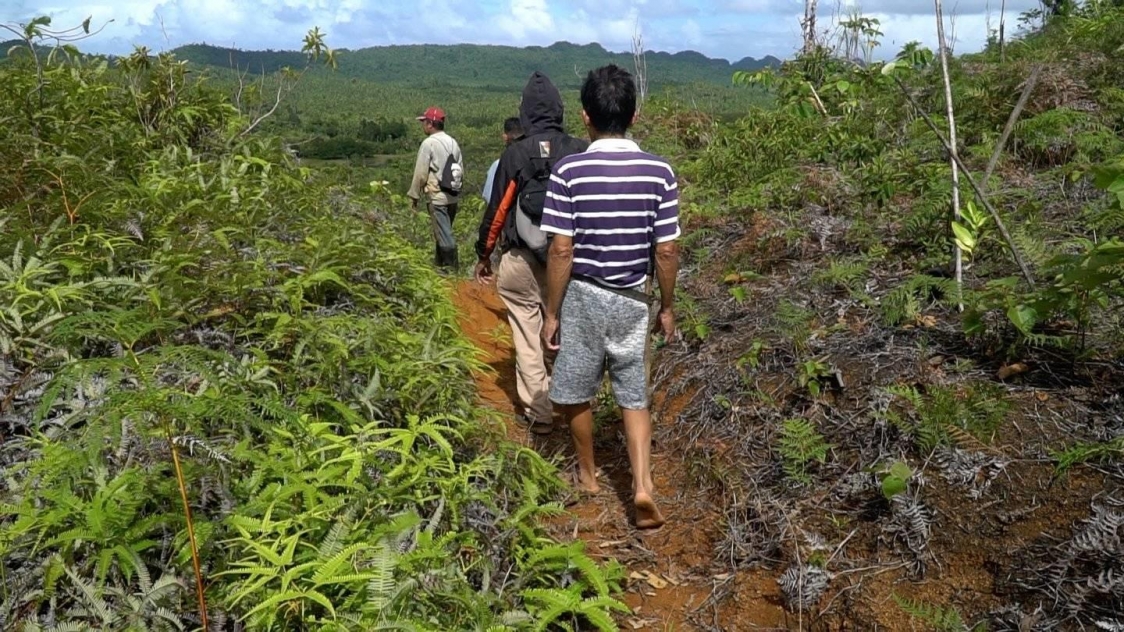SUMMARY
This is AI generated summarization, which may have errors. For context, always refer to the full article.

For more than 25 years, farmer Nestor Luib has made sure that the Sambunotan Watershed in Dinagat Islands will be safe from harm.
With large trees spanning across the 2,819-hectare area, the Sambunotan Watershed faces grave threats due to charcoal making, grassfire, unsustainable farming practices, and most especially timber poaching.
The watershed was under further threat during the coronavirus outbreak when quarantine measures greatly affected field activities of the provincial environment and natural resources (PENRO), especially forest patrolling and field surveillance works. Until now, many of PENRO’s employees have to work from home due to the pandemic, making it difficult for the office to reach out to groups and get updates.
This has made watersheds and other proposed conservation areas affiliated with the Dinagat Islands’ Conservation Project (DICP) prone to abuse.
Even at 61 years old, Luib treks to the watershed every day to be on the lookout for illegal loggers. He is one of the remaining 23 elderly Dinagatnons of the Alagad Kalambuan Kinaiyahan Incorporated (AKKI) who serve as protectors of the watershed since 1995.
According to PENRO-Province of Dinagat Islands (PDI), AKKI members continue to visit the watershed even during the pandemic, where they also tend to plants and produce, including bananas and sweet potatoes to feed their families.
AKKI’s role in the protection of the watershed was especially vital at the onset of the pandemic. Due to quarantine measures, forest protection personnel were only on-call, relying mainly on text messages or calls from those in the field like the Philippine National Police for reports.
The PENRO-PDI had only operated with a skeletal force, making them drop their Landscape and Wildlife Indicator-related activities, which are done as preventive measures for any illegal activities, in April.
It was only in May when patrolling activities were continued so long as personnel were following the prescribed health protocols.
As illegal logging ramped up throughout quarantine due to a lack of forest patrollers, the provincial DENR was able to apprehend 1,073.5 board feet of illegally cut and undocumented lumber in various dimensions from mangrove and mountain areas within DICP’s proposed conservation areas.
Having seen the damage wrought by illegal loggers, AKKI took it upon themselves to rove the area and report any illegal loggers in a bid to protect the Sambunotan Watershed and their livelihood, even during the outbreak.
In their spare time, AKKI members work on reforesting the watershed to cover the bald patches of land left by illegal loggers.
They’ve been doing these years ahead of the establishment of the Dinagat Islands Conservation Project in 2013, which aimed to promote a culture of biodiversity conservation in the province.
“Daghan mi gibuhat ana kay ang mga agi sa mga illegal logging sa unang panahon, amo na gi panamnam og mga kahoy. Amo gi-reforest, gibalikan namo og tanom…Pero mao lagi na pag abot sa panahon mutukad sila didto mga ilegalista, pang-dasmagan ra nila,” Luib told Rappler back in February.
(We did a lot for the watershed. We planted trees in the areas affected by illegal logging. We reforested it and planted some again…But when the illegal loggers came, they would just trample the plots.)
It was in 2017 when the Department of Environment and Natural Resources (DENR) hired and deputized AKKI to serve as the Bantay Gubat in the area. For 6 months, AKKI members were able to receive a honoraria of P4,000 for their work.
Threats to the watershed
The hiring and deputization of the AKKI are part of DENR’s efforts to conserve Dinagat Islands’ remaining ecological resources.
With the help of stakeholders including local governments and their people, the Dinagat Islands Conservation Project has been aiming to exclude priority areas from being part of the province’s mining reserve since 2013.
In 1939, President Manuel Quezon had declared the entire province as a mineral land reservation through proclamation 391.
The province has been feeling the brunt of large-scale mining operations which have scalped massive forests, and affected nearby rivers and oceans.
Due to a lack of identified conservation areas, the mining claims have included water sources, critical habitats, and hotspots with endemic flora and fauna, among others.
One prime example is the Sambunotan Watershed, a source of potable water for 6 barangays in Tubajon, a town in Dinagat Islands.
Aside from Tubajon, it also provides irrigation and drinking water to Loreto town.
Despite being a critical source of water for both towns, the Sambunotan Watershed is prone to environmental degradation.
About 710 hectares of the watershed are included in mining claims of 3 companies, threatening the water source of the community. That means about 25% of the watershed’s total area can be ripe for mining.
“Lisod sa tubig, labi na karon na ang init karon, lahi sa una. Ang init karon grabeng sakita unya ang init, murag kusog magkuha og tubig. Pag abot sa init, muhinay ang tubig diha,” Luib told Rappler. “Mao na kinahanglan na gyud kay ang kahoy mas mutigom, mas mupugong og tubig, mao na dili mi gusto pang hilabton na.”
(Water is hard to come by, especially when the heat now is different from before. The heat now is painful and it sucks up water quicker. When the heat comes, the water slows down. That’s why we need the trees to hold in water. That’s why we don’t want anyone to touch it.)
The threat is further compounded by illegal loggers, who’ve learned to use silencers for their chainsaws.
Members of AKKI have even experienced being hunted down and monitored after seeing illegal loggers cutting trees in the watershed.
The PENRO-PDI said they’ve been getting calls and text messages regarding illegal small-scale quarrying in the province. The extraction was not only limited to river and mountain quarry but beach sand as well.
PENRO-PDI added that these activities were “rampant especially during the COVID-19 quarantine period as one of the source of income to some affected people in the community, and mostly for domestic use.”

Conservation efforts
With the threat of illegal loggers, sparse trees in the watershed will mean trouble for those in the lower barangays.
“Kung hindi siya mapre-preserve, delikado po siya sa pagdating ng flash flood, yung natural calamities kasi hindi na natin mapipigilan. Sa tingin ko, ‘yun (conservation) lang makakapagtulong, makakaiwas,” shared Tubajon Mayor Simplicia Pedrablanca to Rappler in February.
(If Sambunotan Watershed won’t be preserved, it’s dangerous when flash floods and natural calamities come because they can’t be stopped. From what I see, only conservation can help and avoid [disaster].)
The local government of Tubajon has boosted conservation efforts in the area by doing home-based seedling production for the reforestation of the Sambunotan Watershed. The provincial environment and natural resources office, together with the municipal governments of Loreto and Tubajon have also partnered up in preserving the watershed.
Although the DENR had funded the honorarium of AKKI for 6 months in 2017, it had stopped providing financial support beyond that.
Despite being unpaid, AKKI continues to patrol the Sambunotan Watershed even during the coronavirus pandemic, according to the provincial DENR office.

Panriquito Lacumbes, 72 years old and also an AKKI member, lamented to Rappler back in February how difficult it was to continue roving the watershed with no pay. He added that more has to be done to reforest the foot of the watershed.
“Wa nay kahoy. Gusto namo na i-reforest na siya pero wala funding ang kalisod. Lisod man maglihok. Magtukad mi didto, tagbo-tagbo nga usahay wala mi sud-an,” he said.
(There are no more trees there. We want to reforest it but the lack of funding makes it hard. It’s hard to move. We go there and sometimes we meet without having any food.)
Luib told Rappler that he hopes more support will go to the group as they continue to patrol the forest and train their children to eventually take the helm later on.
For AKKI, the work continues to ensure the town’s water source is protected.
“Og ma wa nang tubiga diha, mangamatay ang mga tao diri. Mao na nga bisag kalisod sa among grupo, kumbati lang man gyapon, padayon mi,” Luib said back in February.
(If we lose our water there, the people will die. That’s why no matter how hard it is for our group, we still fight and continue.)
With the help of the community, the Dinagat Islands Conservation Project (DICP) seeks to finally remove the Sambunotan Watershed, as well as 8 other watersheds and 3 proposed protected areas, from the province’s mineral reserve.
As the coronavirus pandemic slows down operations, the provincial DENR focuses on profiling the priority conservation areas for possible filing of the appropriate bill in Congress.
A meeting between DENR and the members of AKKI to discuss the provision of possible land titles in the Sambunotan Watershed to the elderly volunteers has also been put on hold due to the pandemic. PENRO said they hope these activities will continue in 2021.
With the land titles, the plot where the members of AKKI plant their produce will officially be theirs.

While waiting, AKKI hopes more people will realize the vital role that people’s organizations play in development and conservation.
“Og wa pa ang AKKI, wa na mainom run diri sa Tubajon tubig ba. Dako kabag-ohan. Unya karon mas maayo gyud na ipadayon para nga kanang boluntar diha hangtod sa pag gamit sa mga kabataan,” said Luib to Rappler in February.
(If AKKI didn’t exist, there won’t be water here in Tubajon. There’s been a big change. It’s beeter to continue this so the watershed can be of use to the future generation.) – Rappler.com

This story is produced in partnership with Friedrich Naumann Foundation.
Add a comment
How does this make you feel?

There are no comments yet. Add your comment to start the conversation.